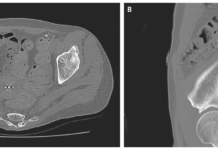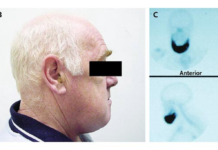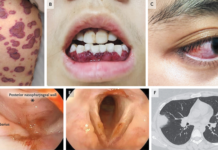Turner syndrome is a genetic (chromosomal) condition characterized by a partial or complete absence of one X chromosome. Such females have 45 chromosomes instead of the normal 46 chromosomes.
Females with Turner syndrome have certain characteristic morphological features. Besides appearance, it also affects many organ systems, including skeletal malformations, visual and auditory abnormalities, heart anomalies, kidney abnormalities, and gynecological abnormalities. Affected females are usually infertile, with spontaneous pregnancy seen in only 2 to 7% of the TS females. Moreover, approximately 90% of those with spontaneous conception have a mosaic karyotype.

Mosaic Turner Syndrome:
Turner syndrome is the partial or complete absence of the X chromosome. Classical TS is characterized by the absence of an X chromosome in all the cells. In contrast, in mosaic TS, some of the cells have the X chromosome, while others don’t. So mosaicism refers to the different chromosomal content of different cells.
A case of mosaic Turner syndrome:
A 22-year-old female, known case of Turner syndrome with mosaic karyotype, presented to the outpatient clinic at the 34th week of her first pregnancy. Prior to this visit, the patient had limited prenatal care.
Her past history revealed a diagnosis of the mosaic karyotype of turner syndrome at the age of 14, during evaluation of short stature.
Menstrual history revealed menarche at the age of 14. Thereafter, she had regular, monthly menstrual cycles with mild to moderate flow, lasting for 4 to 5 days on average.
Obstetric history:
Obstetric history revealed that this was her first conception and she conceived spontaneously, i.e., without any medical intervention or fertility treatment. Pregnancy complications included anemia, substance abuse (marijuana use), and infection with trichomonas. Additionally, the patient had no proper prenatal care along with a lapse from 13 weeks to 26 weeks, and intrauterine growth restriction with abnormal Dopplers.
A routine ultrasound had shown an estimated fetal weight of 10% along with abnormal Doppler waves. Therefore, the doctors followed her with weekly nonstress tests (NSTs), ultrasound, and biophysical profile (BPP).
Also, fetal echocardiography was done to rule out cardiac anomalies, considering maternal TS. The ECHO came out to be normal.
During the last prenatal visit, the patient presented with frequent contractions, thereafter, she was transferred to triage. She was having regular contractions every 1 to 2 minutes. CTG revealed two variable decelerations.
The obstetricians decided to induce labor so they gave her prostaglandins vaginally, followed by oxytocin at 37+ 6 weeks.
The patient delivered a healthy baby boy weighing 2750g. The neonate had APGAR scores of 8 and 9 at 1 and 5 minutes, respectively.
Pregnancy in females with TS is a high-risk pregnancy owing to the possible anomalies the mother has. Females with TS are at greater risk of aortic dissection and rupture, and other pregnancy-related morbidities and mortality. Therefore, it is imperative to discuss and educate the patient and the family regarding the risks associated with pregnancy. Besides, fertility preservation options as well as counseling on all along with their associated complications and risks that might develop during pregnancy and after delivery.
References:
Turner syndrome. Genetics Home Reference. January, 2012; http://ghr.nlm.nih.gov/condition/turner-syndrome.
Lara Orejas E, Golmayo Gaztelu L, Núñez Estevez M, San Román Cos-Gayón MA, Alonso Blanco M, Barrio Castellanos R. Low stature in males with normal phenotype and 45,X/46,XY mosaicism. Anales de Pediatria. February 2008; 68(2):140-142. http://www.ncbi.nlm.nih.gov/pubmed/18341880. Accessed 12/15/2010.
Hadnott TN, Gould HN, Gharib AM, Bondy CA. Outcomes of spontaneous and assisted pregnancies in Turner syndrome: the U.S. National Institutes of Health experience. Fertil Steril. 2011;95(7):2251-2256. doi:10.1016/j.fertnstert.2011.03.085
Yousif A, Wheatley M, Abuzeid MA (2020) A Case Report of Spontaneous Pregnancy in a Mosaic Turner Syndrome Patient. so Obstet Gynecol Cases Rev 7:181. doi.org/10.23937/2377-9004/1410181
National Organization for Rare Disorders (NORD); Turner Syndrome: https://rarediseases.org/rare-diseases/turner-syndrome/




